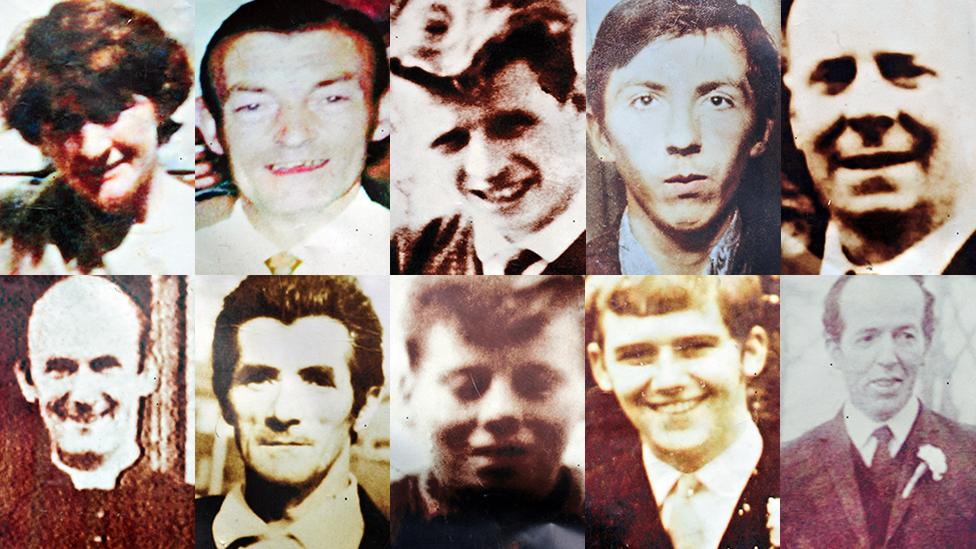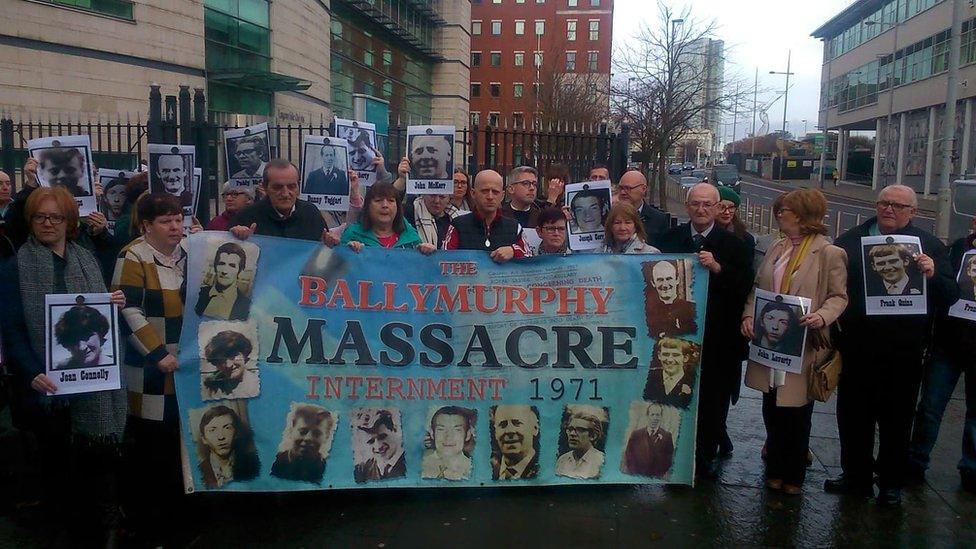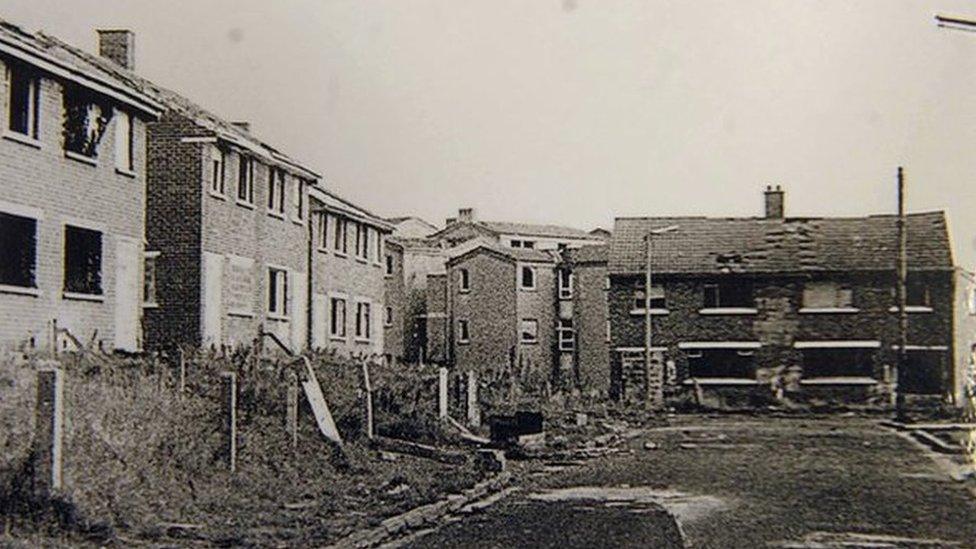Ballymurphy inquest: Residents fled for their lives
- Published

Nine men and a woman were killed in Ballymurphy in August 1971
The Ballymurphy Inquest has heard how residents of a street fled for their lives in a hail of gunfire.
Resuming public hearings after several weeks, the inquest is looking into the shooting dead of 10 people in the Ballymurphy area in August 1971.
They died during the first few days after the introduction of internment.
The inquest has now begun to examine the deaths of a priest, Father Hugh Mullan who was 38, and 19-year-old Frank Quinn.
Both men were shot in the evening of 9th August 1971 on waste ground beside Springfield Park, off the Springfield Road.
They had been trying to help another man who had already been shot.
Statements from the time are being read to the court because the witnesses are either deceased or have not been traced.

Who were the victims?
Father Hugh Mullan, 38, and Francis Quinn, 19, were shot in an area of open ground behind Springfield Park
Daniel Teggart, 44, Joan Connolly, 44, Noel Phillips, 19, and Joseph Murphy, 41, were shot near the Henry Taggart Army base near Springfield Park
John Laverty, 20, and Joseph Corr, 43, were shot at separate points at the top of Whiterock Road
Edward Doherty, 31, was shot at the corner of Brittons Parade and Whiterock Road
John McKerr, 49, was shot outside the old Corpus Christi Parish

'A mixed area'
Springfield Park was known as a mixed area where Protestants and Catholics lived together.
On one side, on higher ground, was the Protestant Springmartin area.
On the other was the Moyard area which was predominantly Catholic.

Relatives and supporters gathered outside Laganside Courts ahead of the start of the inquests
Residents of Springfield Park described a tense day of abuse and stone throwing from a loyalist crowd at nearby Springmartin Flats.
Later a nationalist crowd gathered in the street and threw stones back towards Springmartin.
Families caught in the middle said they called for police assistance to protect their homes, but received none.
'Residents held up white baby clothes'
Around 19.30 to 20.00 BST, gunfire began and families with small children began to run away from the area, across waste ground leading to Moyard.
Some men called at nearby homes and offered to take children to safety, sprinting with them during lulls in the gunfire.
Several described seeing the bullets skipping off the road and said that they frequently took cover on pavements and behind garden walls.
Most thought the gunfire came from the Springmartin area, and some described seeing soldiers with weapons directing fire from the roof of Springmartin Flats.
In desperation, some residents held up white baby clothes, bibs and nappies, using them as white flags.

The shootings took place hours after the government introduced a policy of internment
One witness said a man was shot whilst carrying a six-month-old baby girl to safety.
As he fell, another man lifted the child and took her with him.
Bobby Clarke, who survived, was also shot and will later give oral evidence to the inquest,.
He was given the last rites by a neighbour, Father Hugh Mullan.
As more gunfire rang out, Father Mullan was shot twice.
Another man who ran to help him, Frank Quinn, was also shot.
Father Mullan cried out and spoke to other men in the area for the best part of an hour before he fell silent.
Both men died.
Frank Quinn left behind a wife and child.
Six shot dead
None of the witnesses who fled the scene described seeing anyone with a weapon in Springfield Park during the incident.
However some witnesses, including a former soldier who lived in the area, said they had briefly observed gunfire directed towards British soldiers from unknown gunmen.
In total, six people were shot dead in the Ballymurphy area that day.
The inquest will spend until after Easter examining the circumstances of their deaths.
Several military witnesses will be called.
The court heard that so far, seven former soldiers have indicated they will request anonymity during the proceedings.
- Published19 November 2018
